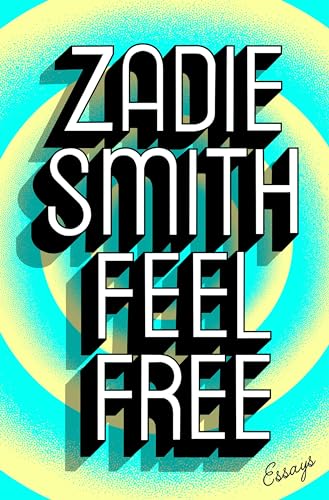One thing you could always say for me: I was a finisher. I may not have been a great reader, but by God I was dogged, and if I made it through the opening 10th of a book, then I was going all the way to the end. Though this started as merely an inclination, it eventually became a rule, for reasons I can’t quite understand. There are, after all, so many books that deserve abandonment, and to this day I admire readers like my wife, who can jump ship after 80 pages. But I suppose my years as an altar boy left their mark, both in a too-easy conflation of negligence and sin and in a deeper, anthropomorphic sense that even a bad book might at the last minute change into something singular and not-to-be-missed. “Everyone, real or invented, deserves the open destiny of life,” as Grace Paley put it, in her own American idiom. And if I was to be the little god of the worlds I made when turning the pages, then who was I to let a little boredom or disappointment turn me away? I mean, isn’t the real God, if there is one, a finisher, too?


 This isn’t to say there weren’t challenges. The Book of Disquiet took me over a year, and several running starts. Ditto Being & Time. Proust I read over four summers, and though there was never a moment when he sunk me in the swamps of saudade, or gave me whatever is German for brain-freeze, it took a certain monogamous willfulness to return to, say, The Fugitive when fresher titles beckoned from the shelf.
This isn’t to say there weren’t challenges. The Book of Disquiet took me over a year, and several running starts. Ditto Being & Time. Proust I read over four summers, and though there was never a moment when he sunk me in the swamps of saudade, or gave me whatever is German for brain-freeze, it took a certain monogamous willfulness to return to, say, The Fugitive when fresher titles beckoned from the shelf.
But then came baby #3. Let’s call her N. She was not, exactly, planned on, though for several consecutive springs when my manic phase rolled in I had this sense that my own open destiny would probably include throwing myself out of the fatherhood plane one more time. Capping the family at two kids would have felt like stopping Proust after book six, somehow. I hasten to say of baby N, as of Proust: totally worth it.
Except that all of a sudden I couldn’t finish anything. When N was born, back in February, The Great War raged in Robert Musil’s diary. Socialism, in G.D.H. Cole’s five-volume history, had entered its anarchist phase. Now, in December, poor Robert Musil still hasn’t reached an armistice, while socialism retains a markedly anarchist flavor.
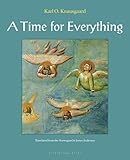
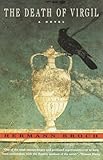
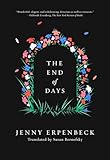 Here was me in the first few months after the delivery: I would open a novel, read along perfectly happily for a day or two, and then let it drop. I was waiting for the thing that would sweep me up and carry me through. But perhaps my reading list was too ambitious for my circumstances. (Like, who outside of grad school reads Musil at the same time as G.D.H. Cole?) I told myself I would move, temporarily, to something more sensible. But to no avail. My study grew littered with dog-eared New Yorkers, foreshortened short stories, longreads I sputtered out halfway through. Many of which I enjoyed, and hope to finish in the near future. For now, though, my year in reading comes back to me as a mixtape, as hip-hop: a swirl of enticing samples. Bits and pieces of Laura Oldfield Ford’s ’zine cycle, Savage Messiah. Phosphorescent sentences from Jaimy Gordon’s Shamp of the City-Solo. Andrew O’Hagan’s essay on Satoshi Nakamoto. Ian Frazier’s on New Jersey Route 3. The poem “Far Rockaway” by Delmore Schwartz. The part of Karl Ove Knausgaard’s A Time for Everything when Antinous Bellori spots some angels in the woods. The part of Hermann Broch’s The Death of Virgil where Virgil arrives in Brundisium and the translation hasn’t yet gone bananas. The unimprovable first paragraph of Jenny Erpenbeck’s The End of Days. And Joseph Conrad’s “The Secret Sharer,” whose allegorical valences were not lost on me. Here I was looking down from the deck of a ship, not quite where I ever thought I’d be, while down there in the water, untethered but unreachable, swam another, truer self.
Here was me in the first few months after the delivery: I would open a novel, read along perfectly happily for a day or two, and then let it drop. I was waiting for the thing that would sweep me up and carry me through. But perhaps my reading list was too ambitious for my circumstances. (Like, who outside of grad school reads Musil at the same time as G.D.H. Cole?) I told myself I would move, temporarily, to something more sensible. But to no avail. My study grew littered with dog-eared New Yorkers, foreshortened short stories, longreads I sputtered out halfway through. Many of which I enjoyed, and hope to finish in the near future. For now, though, my year in reading comes back to me as a mixtape, as hip-hop: a swirl of enticing samples. Bits and pieces of Laura Oldfield Ford’s ’zine cycle, Savage Messiah. Phosphorescent sentences from Jaimy Gordon’s Shamp of the City-Solo. Andrew O’Hagan’s essay on Satoshi Nakamoto. Ian Frazier’s on New Jersey Route 3. The poem “Far Rockaway” by Delmore Schwartz. The part of Karl Ove Knausgaard’s A Time for Everything when Antinous Bellori spots some angels in the woods. The part of Hermann Broch’s The Death of Virgil where Virgil arrives in Brundisium and the translation hasn’t yet gone bananas. The unimprovable first paragraph of Jenny Erpenbeck’s The End of Days. And Joseph Conrad’s “The Secret Sharer,” whose allegorical valences were not lost on me. Here I was looking down from the deck of a ship, not quite where I ever thought I’d be, while down there in the water, untethered but unreachable, swam another, truer self.
Okay, so I guess I did finish the Conrad. And by summer there were other things, small things, I was managing to see to the end. Like several short stories by Mavis Gallant, including “Speck’s Idea,” probably the single most perfect piece of fiction I read this year. Gallant at her best is every bit the equal of Alice Munro, Deborah Eisenberg, or Joy Williams. Whose story “Stuff” was another highlight. As was Claire Vaye Watkins’s “I Love You But I’ve Chosen Darkness,” from the Granta “Best of Young American Novelists” issue.

 Or like the essays in Zadie Smith’s forthcoming collection, Feel Free. Several years ago, I thought I noticed a turn in Smith’s nonfiction, a loosening of the burdens of her remarkable erudition, like an astronaut swapping out the gravity boots, or like a swimmer kicking off from land. The places she now consistently reaches in her essays—on Joni Mitchell and Get Out and Anomalisa and joy—are not only nearer to the distant philosophical goalposts of the true and the just and the beautiful…they get us there with truth and justice and beauty of their own, and with an extraordinary, dab-worthy grace. In short, I feel lucky to be alive at a time when these essays are being written.
Or like the essays in Zadie Smith’s forthcoming collection, Feel Free. Several years ago, I thought I noticed a turn in Smith’s nonfiction, a loosening of the burdens of her remarkable erudition, like an astronaut swapping out the gravity boots, or like a swimmer kicking off from land. The places she now consistently reaches in her essays—on Joni Mitchell and Get Out and Anomalisa and joy—are not only nearer to the distant philosophical goalposts of the true and the just and the beautiful…they get us there with truth and justice and beauty of their own, and with an extraordinary, dab-worthy grace. In short, I feel lucky to be alive at a time when these essays are being written.

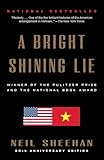
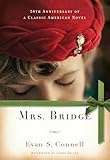 People must have felt similarly fortunate reading A Room of One’s Own a century ago, or hearing it in its original form, as lectures. I somehow made it to 38 without having read it, and in a weird way, I’m glad I did. In a college classroom, I might not have understood it as I did this summer in Maine, as a book not only about feminism, or art (as if these were ever “only”), but about how to live, for everyone, everywhere. That was a good week for finishing things, come to think of it, because I also, finally, tackled Evan S. Connell’s Mr. and Mrs. Bridge, those sterling examples of love as an act of ruthless attention. And I read much of Neil Sheehan’s A Bright, Shining Lie, a monument of narrative nonfiction that belongs on the national required reading list.
People must have felt similarly fortunate reading A Room of One’s Own a century ago, or hearing it in its original form, as lectures. I somehow made it to 38 without having read it, and in a weird way, I’m glad I did. In a college classroom, I might not have understood it as I did this summer in Maine, as a book not only about feminism, or art (as if these were ever “only”), but about how to live, for everyone, everywhere. That was a good week for finishing things, come to think of it, because I also, finally, tackled Evan S. Connell’s Mr. and Mrs. Bridge, those sterling examples of love as an act of ruthless attention. And I read much of Neil Sheehan’s A Bright, Shining Lie, a monument of narrative nonfiction that belongs on the national required reading list.

 There was, too, the compellingly terrible first couple hundred pages of Harlot’s Ghost, part of an ongoing personal Norman Mailer project I probably won’t complete short of a vasectomy. There are times these days when I find bad writing as exciting as good writing. Maybe more. And apparently it’s not just me, because Mailer seems to bring the best out of his critics. Witness Elizabeth Hardwick, in her long-overdue Collected Essays: “the demonic, original clutter of Mailer’s high style.” Or witness Jonathan Lethem: “If, as in the Isaiah Berlin formulation, ‘the fox knows many little things, but the hedgehog knows one big thing,’ then Mailer’s gift and curse was to have been a hedgehog trapped inside an exploding fox.”
There was, too, the compellingly terrible first couple hundred pages of Harlot’s Ghost, part of an ongoing personal Norman Mailer project I probably won’t complete short of a vasectomy. There are times these days when I find bad writing as exciting as good writing. Maybe more. And apparently it’s not just me, because Mailer seems to bring the best out of his critics. Witness Elizabeth Hardwick, in her long-overdue Collected Essays: “the demonic, original clutter of Mailer’s high style.” Or witness Jonathan Lethem: “If, as in the Isaiah Berlin formulation, ‘the fox knows many little things, but the hedgehog knows one big thing,’ then Mailer’s gift and curse was to have been a hedgehog trapped inside an exploding fox.”
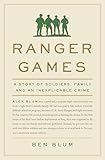

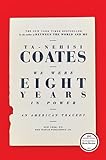 Other, more recent titles I should mention: Ben Blum’s Ranger Games, a gripping and thoughtful blend of memoir and true-crime. George Saunders’s Lincoln in the Bardo, which I can’t make up my mind about—usually a good sign. And Ta-Nehisi Coates’s “My President Was Black,” with its arresting final cadences. I had read, and felt conflicted about, the epilogue to Coates’s We Were Eight Years in Power when it appeared as a stand-alone in The Atlantic. (This is how I read now: epilogue first). If the evidence was hard to reproach, the rhetoric seemed to me flawed. But the book as a whole makes the argument far more persuasively, and—I know this is a little contrarian—I think it’s a more fully realized piece of analysis than Between the World and Me. Coates is that rare thing in our public life: a writer willing to let us see him becoming. We’ll need more of that in the year to come.
Other, more recent titles I should mention: Ben Blum’s Ranger Games, a gripping and thoughtful blend of memoir and true-crime. George Saunders’s Lincoln in the Bardo, which I can’t make up my mind about—usually a good sign. And Ta-Nehisi Coates’s “My President Was Black,” with its arresting final cadences. I had read, and felt conflicted about, the epilogue to Coates’s We Were Eight Years in Power when it appeared as a stand-alone in The Atlantic. (This is how I read now: epilogue first). If the evidence was hard to reproach, the rhetoric seemed to me flawed. But the book as a whole makes the argument far more persuasively, and—I know this is a little contrarian—I think it’s a more fully realized piece of analysis than Between the World and Me. Coates is that rare thing in our public life: a writer willing to let us see him becoming. We’ll need more of that in the year to come.
And finally, while on the subject of public life and presidents and the winter that is now upon us, I suppose it’s time—with apologies to any of his supporters left reading The Millions—to invoke He Who Must Not Be Named. For, as much as I’ve been pinning my distractibility on baby N (which would suggest I only have to persevere till she sleeps through the night), a novelist friend of mine recently proposed a counter-explanation. “Oh, yeah, man, that’s not you, it’s everyone,” he said. “All of our colleagues, everyone I talk to, my mom and stepdad, their neighbors…It’s been everyone’s worst year in reading.” His argument was that we’re so inundated just at present with narrative and fantasy—with one particular person’s narrative and fantasy—that the last thing we want in our reading lives is more imagination. If democracy dies in darkness, then dispense with the dreaming. Just give me the facts.
Now, if I were a Trumpist, I’d probably say “just give me a break.” There goes the liberal culture industry again, blaming him for their own failings, for every last thing they don’t like. To which I simply ask: aren’t you, too, tired of it? The insults, the feuds, the hysterical touchiness, the drag masculinity, the swamping of the drain, the bull in the nuclear china shop? Not to mention the buck stopping perpetually elsewhere. If politics has become a reality show, we’ve progressed in the last 18 months from the guilty pleasure of The Apprentice to the absurdity of The Celebrity Apprentice to, like, Season 7 of Real Housewives…and did anyone not stuck on an airplane even watch Season 7 of Real Housewives? Haven’t you, too, found far more of your brain given over to Donald Trump than you should have give over to even a good president? Or to put it another way: isn’t one definition of “a good president” “one you don’t have to constantly keep your eye on?” Speaking personally, I’m realizing that I read just as much this year as any year…it’s just that hundreds of my hours were given over to news, lest I fail to be aware of some developing crisis. And in the station wagon of representative government, the driver’s not supposed to be hunched over his twitter feed, leaving everyone else to watch out for hazards. We – I mean to include Trump voters here, too – deserve better. We deserve, at a minimum, adult hands on the wheel.
As to what duties an informed citizenry does have, in this or any other time, it’s worth asking: is newspaper prose plus a handful of cultural swatches anyone’s definition of an inner life? Will even the richest fragments be enough to shield us from ruin? Somehow, I don’t think so. In the short run, the con man who now has the car keys may have exposed our gullibility, sending all of us scrambling to find out things we never had to know before. But the long-term damage may be to a quantity so abused as to have fallen into shame and disrepute: the capacity for belief. We will need, if we are to stitch ourselves together again, to find stories that bridge the unbridgeable, stories that make sense of the senseless, or simply present it in all its mystery, stories that respect the difference between facts and truth – stories worth believing in. In some small way, then, seeing a novel or a poem or a work of imaginative nonfiction through to completion may turn out to be not an irrelevance but an act of subversion. Or better yet: preparation.
Here’s to being a better finisher in 2018.
More from A Year in Reading 2017
Don’t miss: A Year in Reading 2016, 2015, 2014, 2013, 2012, 2011, 2010, 2009, 2008, 2007, 2006, 2005
